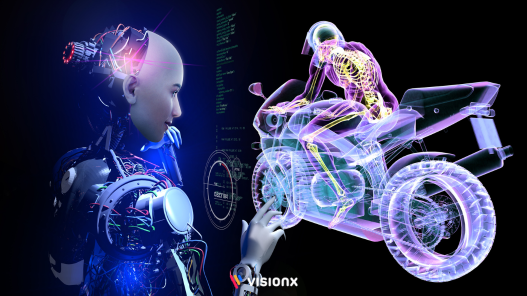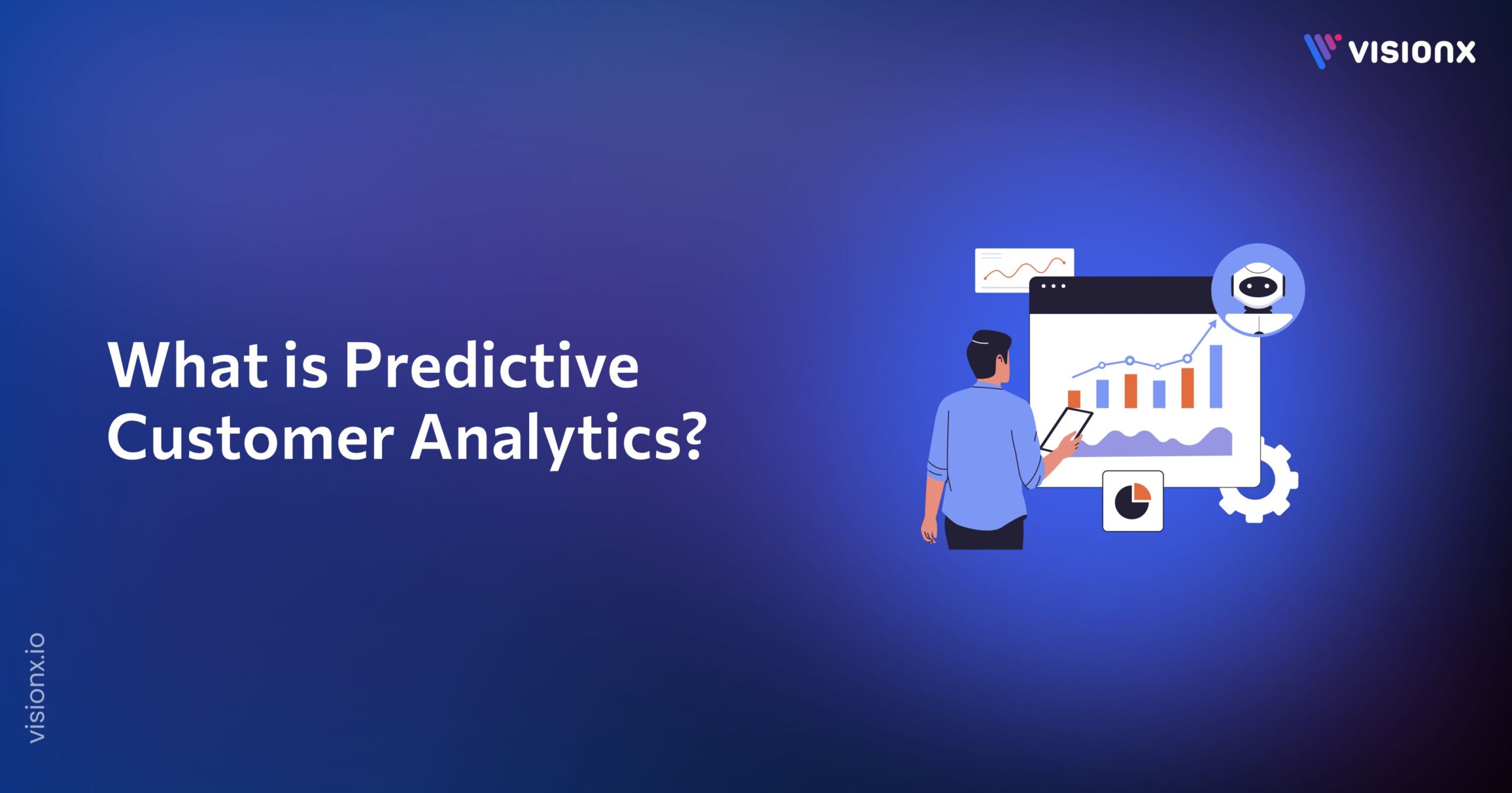Imagine driving an automobile as smart as you. That’s the future of the automobile industry, driven by Artificial Intelligence.
The key concern today in automotive is that the vehicles are starting to get more and more complicated with all sorts of features. But how can we know that they are safe and easy to use? AI is the answer. AI helps the vehicle understand its surroundings, make decisions quickly, and even has the capacity to learn from its experience.
A report from Statista indicates that automotive intelligence worldwide is expected to be worth around $74.5 billion by 2030, thus showing how significant AI is within that field. So, when you get behind the wheel again, bear in mind that AI is improving your safety and comfort while driving.
In the following article, we will elaborate on the various ways in which AI has transformed the automobile industry, its applications, and future transformations.
Impact of AI in Automotive Industry
AI deeply influences the automotive sector as it marks the direction in which efficiency and innovation are heightened. Automating manufacturing processes with AI reduces cost and enhances supply chain management. It is also used for data analysis, helps the manufacturer enhance production at all levels, and improves vehicle performance.
AI in Manufacturing:
Prior to the introduction of AI, vehicle manufacturing was based on human labor, which took a lot of time and was easy to complain about. This has been changed by using robots for task automation through self-learning machines, thus making manufacturing faster and keeping it under tight quality regulation.
A good example is how Audi employs computer vision to identify defective elements in raw materials, thus ensuring that its products meet high-quality requirements.
Enhanced Safety Features:
AI has improved vehicle safety through the use of ADAS. These systems, based on live sensor data, provide options like automatic emergency braking, lane-keeping assistance, and adaptive cruise control, among many others. By assessing large amounts of data within a short span of time, AI can counteract human drivers and thereby reduce accidents.
Enhanced In-Car Experience:
AI-based experiences are also leading to a more intuitive and engaging in-car environment for drivers and riders. Thanks to AI, voice-activated assistants let drivers control navigation, music, and climate settings without lifting a finger—turning convenience into safety.
Similarly, AI can assess the behavior and preferences of drivers in controlling actions such as seat configurations or infotainment alternatives, thereby providing a more engaging onboard experience that caters to their needs. The added layer of personalization helps with comfort and relates to the vehicle better than before.
Use Cases
There are many use cases in the automotive industry where AI is taking huge leaps with respect to safety and efficiency. Following are a few of the major applications AI has in this sector:
1. Driver Assistance Systems (ADAS):
Through artificial intelligence, ADAS enhances vehicle safety and informs the driver in real-time with data and alerts. Such systems include cameras, sensors, and radar to trace conditions happening around a vehicle for the purpose of assisting in various driving tasks.
For instance, adaptive cruise control automatically readjusts the speed of the vehicle on the basis of traffic conditions, while lane departure warning notices make drivers aware if they veer outside their lane position. This kind of system, now combined with AI, interprets complex driving situations and makes instant decisions to avoid accidents.
2. Autonomous Vehicles:
AI is instrumental in providing vehicles with the ability to traverse along a path with operational functions enabled and independent of human intervention. Advanced technologies, such as sensor fusion, compile a large amount of data from sources such as LiDAR, cameras, and radar and integrate this information for a complete view of the vehicle’s outside environment.
This information goes into machine learning algorithms, allowing the vehicle to identify objects, predict other traffic participants’ actions, and make informed decisions.
3. Predictive Maintenance:
AI-driven predictive maintenance upsurges the way vehicle maintenance is approached. The onboard sensors obtain data, which, upon analysis through AI, identifies patterns and anomalies that suggest possible issues long before they result in any breakdown.
Due to this, manufacturers today can plan maintenance around actual conditions instead of fixed schedules. In turn, overall downtime and repair costs decrease while vehicle reliability improves. Because of increased reliability, customer satisfaction also improves.
4. AI-driven marketing for dealerships:
AI has been changing the dynamics of marketing strategy for automotive dealerships by making customer engagement far easier. Advanced data analytics will also enable car dealers to segment customers depending on their preferences and behavior to make targeted promotions and personalized marketing campaigns.
Predictive analytics help score leads based on their likelihood of conversion so that the sales teams can focus on high-potential customers. That means AI-driven chatbots can respond immediately to any customer inquiry, even help customers schedule test drives, and support overall customer interaction with ease, making buying easier.
5. Intelligent Traffic Management:
Multiple AI technologies are being applied to road traffic management systems with the aim of facilitating smooth flows of vehicles and improving road safety. From simple data inputs, such as cameras or sensors, AI can dynamically change the state of traffic lights to avoid traffic congestion and reduce commute times.
Predictive traffic modeling reports to city planners how traffic might develop in view of certain scenarios and provides them with the opportunity to implement measures to help alleviate bottlenecks, thereby creating smoother transportation networks.
6. AI in Vehicle Design and Manufacturing:
Artificial Intelligence is transforming the auto industry’s design and manufacturing process, unleashing radical ways of building vehicles. Generative design algorithms allow engineers to generate a million-plus design alternatives based on pre-defined parameters, which then allow optimized vehicle structures for improved performance and safety at lighter weight.
Besides this, AI is used in quality control via computer vision, which finds defects in materials and components produced, thus ensuring high-quality standards.
How is AI changing the future of the automotive industry?
AI is the future of the automotive industry, powering innovations in full autonomy, vehicle-to-everything(V2X) communication, personalizing driving, and even the efficiency of electric vehicles(EVs). With the use of AI, fully autonomous cars will exist, and traffic accidents due to human error will gradually come to an end.
V2X communication can enable a car to communicate with infrastructure, pedestrians, and other vehicles. It provides higher levels of safety and efficiency inside the flow. AI will also make driving highly personalized; from automatically adjusting seat position and temperature to driving modes, it will all be acquired under one wing.
Besides, AI will enhance EV efficiency through optimization regarding battery usage, energy consumption, and charging patterns, which are the most important things while making an electric car ecologically and budget-friendly.
Advantages of AI in Automotive Industry
The following are the advantages of AI in automotive industry:
- Improved Safety: It enhances road safety by predicting analytics, ADAS, and Autonomous Driving systems to prevent accidents and save lives.
- Operational Efficiency: AI helps optimize the production and manufacturing process, using resources more effectively to reduce costs and minimize unnecessary time consumption.
- Reduced Environmental Impact: AI optimizes fuel efficiency and develops electric and hybrid cars that will help make the industry greener.
- Enhanced Customer Experience: This includes improved customer experience in which AI makes driving personal for each customer, thereby heightening satisfaction through personalization, voice-activated controls, and predictive services.
- Predictive Maintenance: While AI can predict issues that may arise with vehicles before they do, the cost savings associated with reducing maintenance costs increase significantly.
Challenges and limitations of AI in automotive industry
Despite the advantages, there are also challenges regarding AI in automotive industry:
- High Costs: Development costs for AI technologies, mainly in autonomous driving, are pricey, as the research, development, and testing require very heavy investments that every manufacturer cannot afford.
- Regulatory and Ethical Issues: Legislation regarding driverless cars is still evolving. Many questions have been raised about liability issues in the event of accidents and other ethical decisions the AI system operating it will make.
- Data Privacy: AI-driven vehicles will gather volumes about drivers and driving behavior, raising serious issues regarding privacy and challenges related to cybersecurity.
- Technological Limitations: AI systems are not perfect, and the technology has yet to evolve. Data misinterpretation, malfunctioning systems, or hacking can lead to accidents or misuse of AI systems.
- Consumer Trust: Many will find it difficult to trust artificial intelligence, especially in fully autonomous vehicles. Many consumers are still afraid to give machines control due to the fear of malfunction and accident possibilities.
Conclusion
AI is altering the game in the automotive industry, presenting solutions that affect vehicle manufacturing, road safety, personalization, and customer experience. From driving autonomously to smart traffic control, AI is building a future where vehicles can be much more intelligent, safer, and efficient.
Though there are higher costs, data privacy concerns, and consumer confidence issues, the benefits of AI cannot be denied in safety enhancement, operational efficiency, and assurance of environmental sustainability. With continuous improvement in technology, the application of AI will keep on rising in the automotive sector, making lives more connected, innovative, and eco-friendly.
Over the next few years, AI will rewrite the rules on how we interact with vehicles, be it fully autonomous cars or in-car environments tailored to the individual’s taste. It will also make driving safer, more convenient, green, and sustainable for the industry. The road ahead is exciting, with AI at the wheel.


